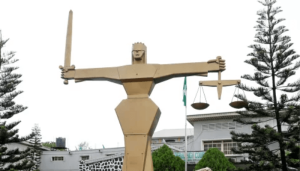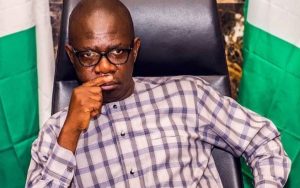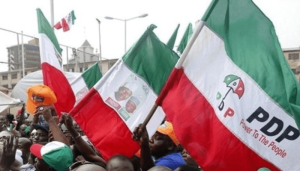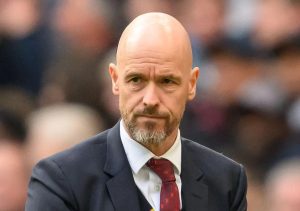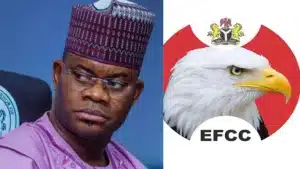Nigeria@62: Education still in search for breath
Another imbalance is that lots of the attention on teaching staff and the education sector is switching focus from where the real issues are in Nigeria – the collapse of quality public education
By Adeyemi Adekunle

Since decades when Nigeria’s educational system got an outlook from what it was to 6-3-3-4 (6 years primary, 3 years junior secondary, 3 years of senior secondary, and 4 years tertiary education)a similar method to the American system of education. The country was agog, drum were not heard but everyone who was a sympathizer of the junta felt the change will bring the required modernization they had all been waiting for and got agitated.
The then federal government brought about the policy of the 6-3-3-4 system of education to engender smooth operation of the Nigerian education system which they perceived will enhance a new face for Nigerian education. With the commitment on the part of the government to ensure that the new education policy meets the government agenda of a technology-driven economy in Nigeria.
It became obvious to all and sundry that the existing system will only achieve little to meet the education standard anticipated, let alone to have inculcated in the Nigerian child the relevant values which education espoused. A missing link was the absence of entrepreneurial development in the school syllabus, and this led to a lack of employment as Nigerians graduated from college without the skills to engage themselves profitably.
The tertiary institutions also recorded the same defeat as there was no trace of entrepreneurial courses in the universities across the nation thus, depriving Nigeria of technologists, technicians, and scientists as a result of this education system paying so much attention to art courses. Educators had reasoned that the system had changed. All the necessary basic fundamental such that will equip him for entrepreneurship, then at the post-primary students are expected to be armed with technical and vocational knowledge that will make them profitable Nigerian citizens, while at the tertiary it was human capital intensive, men and women were expected to become professionals in different areas of human endeavor.
With Nigeria approaching its 62nd years of being an independent nation, successive governments are still in the claws of the disintegration that has be-devilled the Nigeria education system.
Not only has Nigeria’s Education system became moribund with various crises from Primary to tertiary institutions in Nigeria, but the solution is still far from getting to the point of being solved. Between 1999-2022, 23 years, the academic staff union of universities(ASUU) has been on strike for the 16th time. ASUU has made its demands clear, in past negotiations as well as agreements based on those negotiations. The issue of strikes does not exclude the teachers in primary and secondary schools in Nigeria.
As Nigeria clocks 62years as a sovereign nation, to harness its capacity to solve the problems the education sector is neck deep in will be a story with an impactful ending. When the same problems keep re-occurring in a similar nature, it just means the causes are visible, and fixing them permanently will only require altering the structural analysis. All it will require is the phenomenon of tackling them and giving the outcomes they thus require.
Since independence, a conscious look at the standards of instruction, infrastructure, and quality of students that graduate from public universities compared to private universities over the last 20 years, it’s obvious that private universities had evolved beyond public universities, and the gap is not anywhere at close range. Government-owned universities have their incentives arranged such that they aspire to similar levels of uniform mediocrity, but the private-owned universities have leveled up to the top schools which are clear, and each school can price and attract student types according to where it stands in service delivery. We’ve also seen top employers begin to express a preference for graduates from specific private universities.
The direct funding of public schools in Nigeria by the government has created a perverse incentive that has resulted in homogeneous mediocrity in public schools. The combination of government-subsidized education where the performance of both the schools and the students are not a major consideration in who gets subsidies means education is not about the knowledge and skills acquired there but as a signal tool that the employers then use as a shorthand to hire.
Another problem facing the education sector in Nigeria is the issue of misalignment of resources which has fractured the education, employment, and rewards systems in the job market. Ironically, this extends to the teaching staff themselves. The level of pay they receive is not commensurate with the investment in time, cost, and intellectual exertions that they have to make to obtain their qualifications because of this imbalance.
Another imbalance is that lots of the attention on teaching staff and the education sector is switching focus from where the real issues are in Nigeria – the collapse of quality public education.
According to a report of the 2021 Multiple Indicator Cluster Survey carried out by the National Bureau of Statistics and published in August 2022, only 26.8% of children between ages seven and 14 in Nigeria could read functionally in any language and only 25.4% could carry out basic arithmetic. Despite these appalling statistics, in a reversal of our reality and what global priorities even in developed countries are.
Another fidgeting issue is the possibility that the action of one union in public schools can shut down the education sector nationally. Because they are all employees of one entity, the government, the union cuts across public schools and shuts them down at will. Such a universal failure point should not exist in a learning system.
The expectation of Nigerians as they celebrate the country’s 62years of independence is for the government to reiterate its effort to honor all pasts agreements it had with all educational unions. Government should ensure that confidence is still in citizens so that whether the current administration they are negotiating with or a subsequent one, will honor any agreement or arrangement made with them. This creates an atmosphere where negotiations are easy and the costs of meeting demands can be spread over a longer period because the entities involve trusting the government to meet its obligations.
Any incoming-government should have an implementation plan that is within its tenure to allow the costs of meeting the financial implications of meeting these obligations to spread within their budget cycles. The framework must be tight legally such that it is impossible to legally extend this charge beyond their terms, to avoid temporary solutions in Nigeria that might become a permanent drain on the government.

A Nigerian trained investigative journalist, who cover various news beats in Nigeria.

